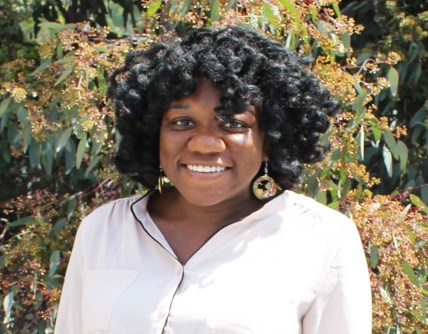December 7, 2018
 Jessica Ray realizes the value of wastewater
Jessica Ray realizes the value of wastewater
Despite the name, wastewater is actually quite valuable. It contains nutrients and has the potential to alleviate drinking water shortages around the world. However, since the value of wastewater hasn’t yet been realized on a larger scale, incoming faculty member Jessica Ray is working to usher in a paradigm shift.
Joining the CEE faculty in January 2019 as an assistant professor, Ray envisions a circular approach to the wastewater lifecycle. Currently, wastewater is processed at a treatment plant and released back into local waterways without resource recovery or recycling of the water.
“Urban water supply was formally considered by environmental engineers in a linear approach of consumption to waste,” Ray said. “However, this current paradigm cannot sustain increasing water demand.”
To support a circular model approach, Ray is developing new technologies for water reuse and resource recovery, combining tools and methodologies from both material sciences and environmental engineering. To improve the quality of drinking water, Ray is developing low-cost selective adsorbents to remove toxic trace organic compounds from wastewater.
Ray is also creating new materials to passively remove contaminants prior to stormwater infiltration, when water enters the soil and feeds lakes, streams and rivers. In the future, Ray believes that captured, treated stormwater may have potential as an alternative water source.
To recover nutrients from industrial wastewater, Ray is working to create new materials that target nutrient extraction. This is especially critical for the recovery of phosphorous, used in fertilizers, which is being depleted at an unsustainable rate.
Ray comes most recently from a postdoctoral fellowship in the Department of Civil & Environmental Engineering at the University of California, Berkeley, where she designed and tested new composite materials for contaminant removal during stormwater treatment. Ray earned her Ph.D. at Washington University in St. Louis in the Department of Energy, Environmental & Chemical Engineering.
Originally from St. Louis, MO, Ray is looking forward to interacting with students both in the classroom and in her research group. In her spare time, she likes to hike with her dog, Lucy, and bake.
“I was first drawn to UW because of the reputation of the Civil and Environmental Engineering Department, the faculty and their research,” Ray said. “UW also happens to be located in a great city, which also drew my interest.”
 Jessica Ray realizes the value of wastewater
Jessica Ray realizes the value of wastewater